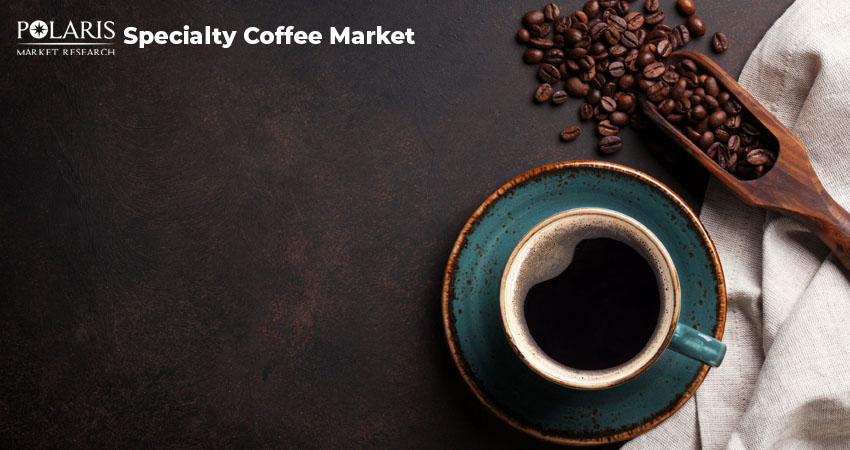Exploring the Top 5 Companies Shaping the Specialty Coffee Market in 2025

In recent years, coffee has evolved from a simple morning ritual to an intricate art form. Gone are the days of mass-produced, bland coffee. Today, coffee enthusiasts seek out unique flavors, ethical sourcing, and sustainable practices. Specialty coffee, a niche market that prioritizes quality over quantity, has emerged as a global phenomenon.
With discerning consumers craving unique flavor profiles and ethical sourcing, specialty coffee has become a popular option. Let’s dive into what makes specialty coffee special and explore some of the companies at the forefront of this global movement.
What is Specialty Coffee?
Specialty coffee is defined as coffee that receives an 80 or higher rating on a 100-point scale from certified coffee tasters, also known as Q Graders. These coffees are grown in ideal climates, meticulously harvested, and roasted to highlight their distinct flavor profiles. The specialty coffee market’s goal is to create a transparent and collaborative supply chain that benefits farmers, roasters, and consumers alike.
Rise of Specialty Coffee
The specialty coffee movement began in the 1970s, thanks to the pioneering efforts of coffee connoisseurs like Alfred Peet and organizations such as the Specialty Coffee Association (SCA). Over the decades, the industry has expanded exponentially, driven by increasing consumer interest in artisanal products, a willingness to pay a premium for ethical and sustainable coffee, and advances in roasting and brewing technologies.
Unlike commercial coffee, which focuses on uniformity and mass production, specialty coffee emphasizes:
Origin: Traceable to a single farm or region.
Quality: Free from defects and rich in complex flavors.
Sustainability: Ethical, eco-friendly, and precision farming practices.
Key Characteristics of Specialty Coffee
- Focus on Flavor
Specialty coffee provides a sensory experience unlike any other. From fruity Ethiopian beans with blueberry notes to the nutty, chocolatey undertones of Guatemalan coffee, each origin tells its own story through taste.
- Sustainable Sourcing
Ethical considerations are fundamental to specialty coffee. Fair Trade, Rainforest Alliance, and Direct Trade certifications ensure fair compensation for farmers while also promoting environmental conservation.
- Innovative Brewing
From pour-over to AeroPress, specialty coffee embraces a variety of brewing methods to highlight its nuanced flavors. This innovation has spread to cafes, where baristas work as skilled artisans, crafting each cup to perfection.
Companies Leading the Specialty Coffee Market
- Blue Bottle Coffee
Headquartered in Oakland, California, USA, Blue Bottle Coffee is a world-renowned coffee chain with locations in San Francisco, Kyoto, and New York, among others. It is synonymous with third-wave coffee culture. Known for its “from bean to cup” philosophy, the company sources high-quality beans directly from farmers and emphasizes minimal processing to preserve the beans’ natural flavors.
- Intelligentsia Coffee
Intelligentsia, based in Chicago, was founded in 1995 and is a pioneer of direct trade. The company works closely with coffee farmers to ensure quality and fair pricing, thereby improving producers' livelihoods. Intelligentsia is known for its innovative roasting techniques. Barista training programs are offered with an emphasis on education. Also, it offers a wide variety of single-origin coffees.
Counter Culture Coffee, headquartered in Durham, North Carolina, is renowned for its emphasis on sustainability and quality. The company invests heavily in training and education to empower both consumers and industry professionals. It regularly publishes transparency reports outlining its sourcing practices. Runs an innovative "Counter Culture Coffee Lab" for coffee education. Supports environmental initiatives in coffee farming.
- La Colombe
La Colombe, founded in 1994 and based in Philadelphia, bridges the gap between specialty coffee and mainstream markets. La Colombe, known for its innovative draft latte, has grown in popularity while remaining true to its artisanal roots. It is recognized as the first to introduce canned draft lattes. With a strong emphasis on ethically sourced, high-quality coffee, it operates cafes throughout the United States and supplies major retailers.
Stumptown Coffee Roasters was founded in 1999 in Portland, Oregon, and is a major player in the specialty coffee movement. With a focus on transparency and long-term farmer relationships, the company has established a standard of quality and integrity. They popularized cold brew coffee in the United States market.
Future of Specialty Coffee
The specialty coffee industry is evolving rapidly, driven by innovations in farming, roasting, and brewing. Emerging trends include:
Technological advancements
Artificial intelligence (AI) and blockchain are being used to improve farming practices and supply chain transparency in order to get better quality products.
Increased Consumer Preference for Good-Quality Coffee
Because of its distinctive flavors, aromas, and production methods, specialty coffee has gained popularity among consumers all over the world. Premium and specialty coffee varieties are becoming increasingly popular as consumers seek more unique and satisfying coffee experiences.
Coffee Subscription Services
Convenient and personalized coffee subscriptions are gaining popularity, allowing consumers to try a variety of beans and brewing methods.
Specialty Coffee Chain Growth
Major specialty coffee chains, including Starbucks, Costa Coffee, and Blue Bottle Coffee, continue to expand. These chains cater to evolving consumer preferences by offering a wide range of specialty coffee options.
Conclusion
Specialty coffee is more than just a beverage. It’s a celebration of craftsmanship, culture, and community. From the farms of Ethiopia to the cafes of San Francisco, this market has transformed how we experience coffee. By embracing innovation, sustainability, and a deep respect for the craft, we can ensure that the world of coffee remains a source of pleasure and inspiration for generations to come.

